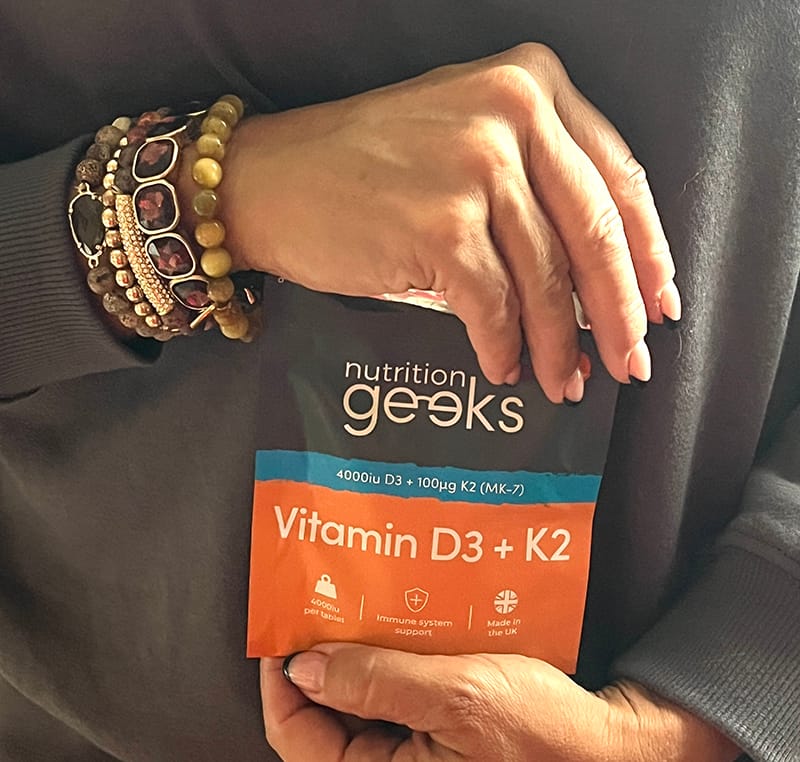A few years ago, I got hit with the flu. And I don’t mean a bad cold. I was bed ridden, the sickest I’ve ever been.
I spent three full days in bed, but even the week before and the weeks after, I was struggling. I developed a chest infection that turned into pleurisy, making every breath painful. I honestly thought I might die.
The doctor didn’t admit me because the hospital was full of Norwalk virus, so I was on steroids and strong painkillers at home, told to call 999 if I worsened. That short period scared me for life. I vowed I’d do everything I could to avoid being that poorly again.
Nobody can guarantee immunity from winter viruses, but there are measures you can take to help fight them off. Keeping fit is one, though ironically the gym is also a prime breeding ground for germs. The stronger your defences, the better your chance of avoiding illness, or at least reducing the severity.
How I Got Serious About Supplements
At that time, my children were small, and I wasn’t exactly taking care of myself. After joining Total Fitness Gym, I started looking seriously into nutrition and supplementation.
Exercise and diet go hand in hand. I also stopped rewarding gym sessions with crappy food or alcohol—there was a time I absolutely did that.
One supplement that kept coming up in my research was vitamin D. That’s when I started taking it, around five years ago. I take it every morning, all year round: Vitamin D3 + K2, 4000 IU D3 plus 100 µg K2 (MK-7).
Why Vitamin D Matters
• Energy: Helps your body use calcium and phosphate, keeping muscles and bones working efficiently. Low levels can make you feel sluggish or weak.
- Immunity: Supports your immune system, helping you fight colds, flu, and infections. Think of it as giving your immune cells the tools they need.
- Mood: Interacts with brain chemicals like serotonin. Low levels can contribute to feeling low or irritable, especially in the darker months.
- Strength: Essential for muscle function and bone health. Helps muscles contract properly and keeps bones strong, whether you’re lifting weights, walking, or just moving through daily life.
“I rarely get sick now and certainly never bed ridden. Vitamin D plays a big part in keeping me strong and well.”
You may have read warnings about taking too much vitamin D and it “building up as fat in your liver.” Honestly, that’s overhyped. Your body generally regulates it well, and toxicity is very rare. If concerned, you can check levels with simple over-the-counter blood tests. I did recently, and my levels came back healthy.

Vitamin D Status in the UK
- Around 60% of adults have insufficient levels (below 75–100 nmol/L)
- About 20% are deficient (under 30 nmol/L)
- Women average slightly lower than men (73 vs. 77 nmol/L)
- Young adults (18–29) have the lowest average, around 70 nmol/L, with over half having low levels
- Regional differences: South East median 77 nmol/L, North East median 71 nmol/L
Being proactive is important, especially during autumn and winter when sunlight is limited. You can also boost levels naturally with sunlight exposure and foods like oily fish, eggs, or fortified products but supplements help ensure you’re covered year-round.
My Takeaway
I take a range of vitamins daily, and throughout this blog, I’ll explain which ones and why. Starting with vitamin D is one of the most important.
While friends and family brush off colds as “just that time of year,” I know from experience I no longer have to be in that cohort. I can keep training and manage the chaos of life without being sidelined.
Note: I’m sharing my personal experience, I’m not a nutritionist. This is simply what works for me. If you have medical conditions or take medications, check with your doctor before starting supplements.
Hope you’ve enjoyed the read and please leave a comment if you so wish. Any questions are welcomed.